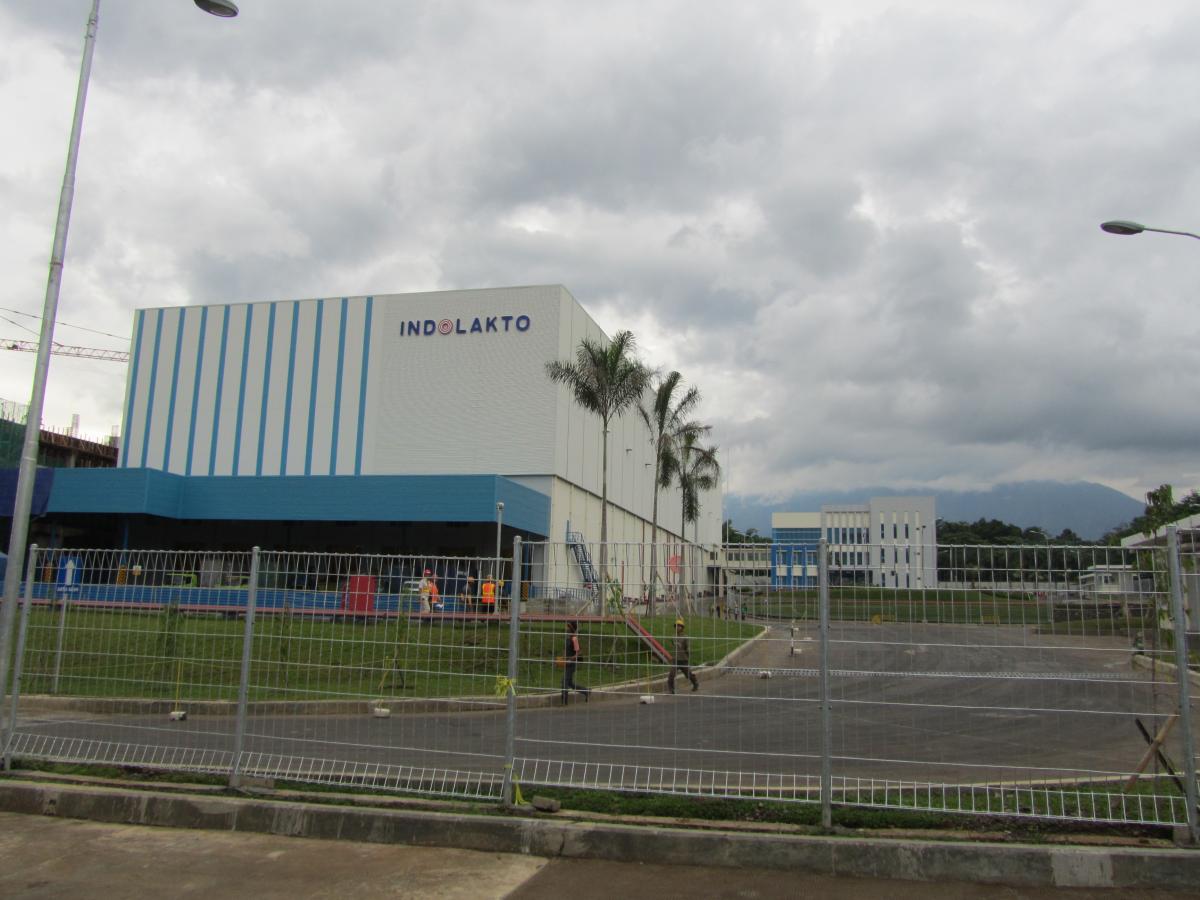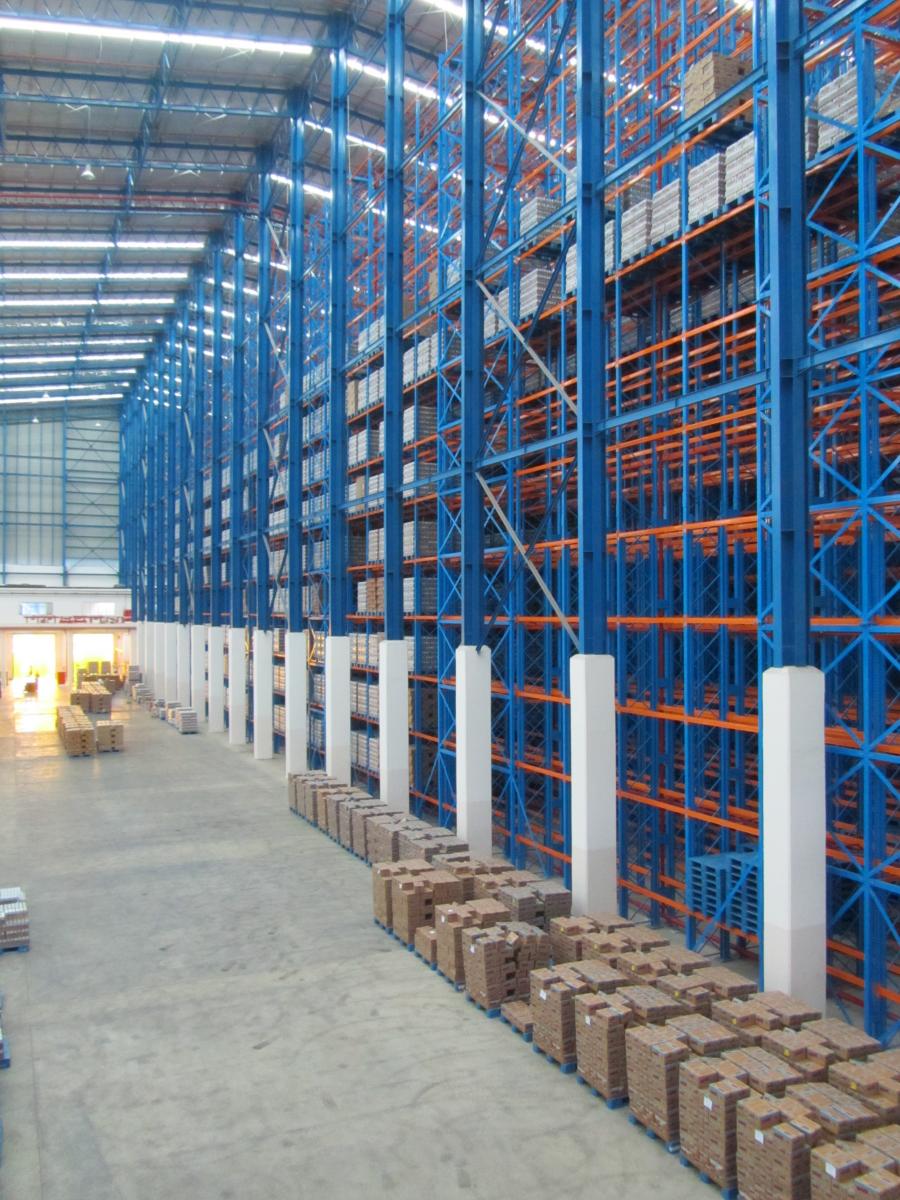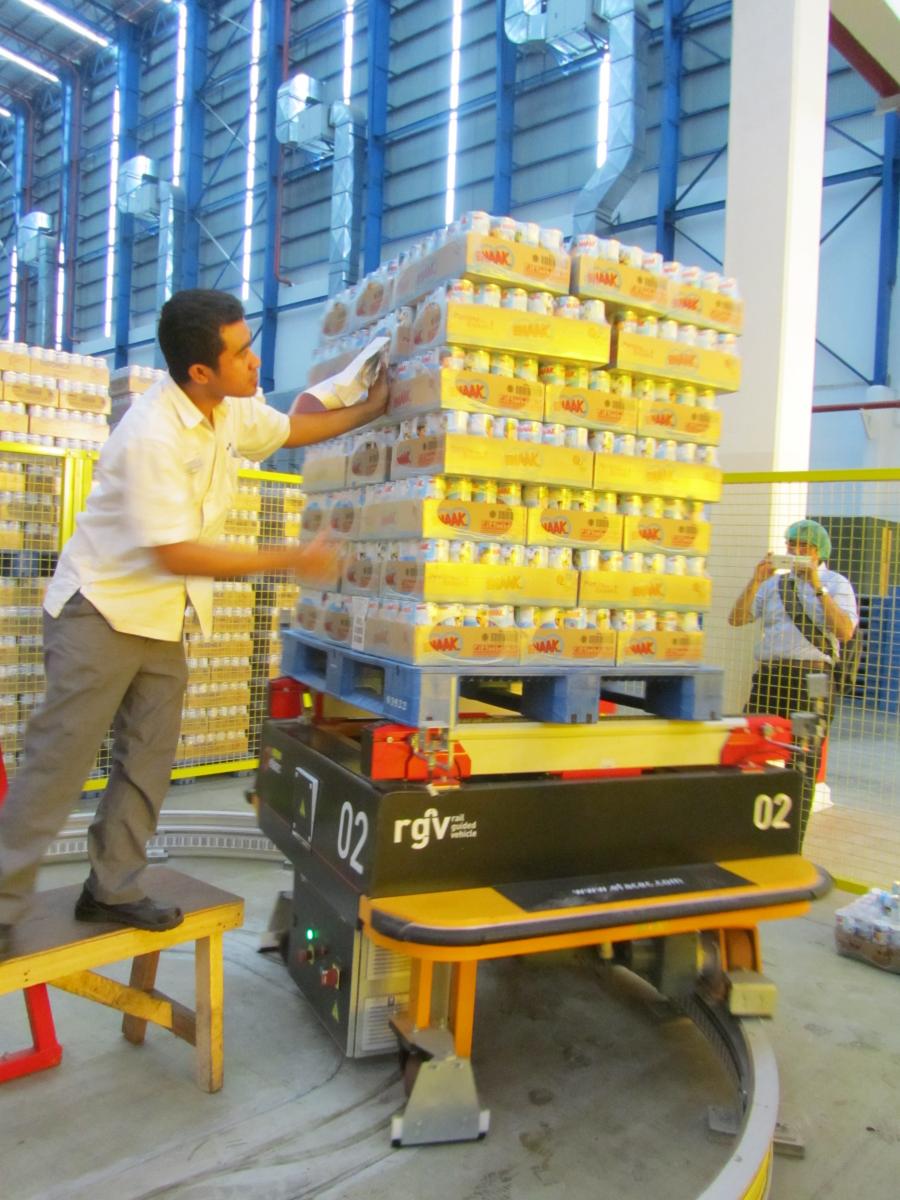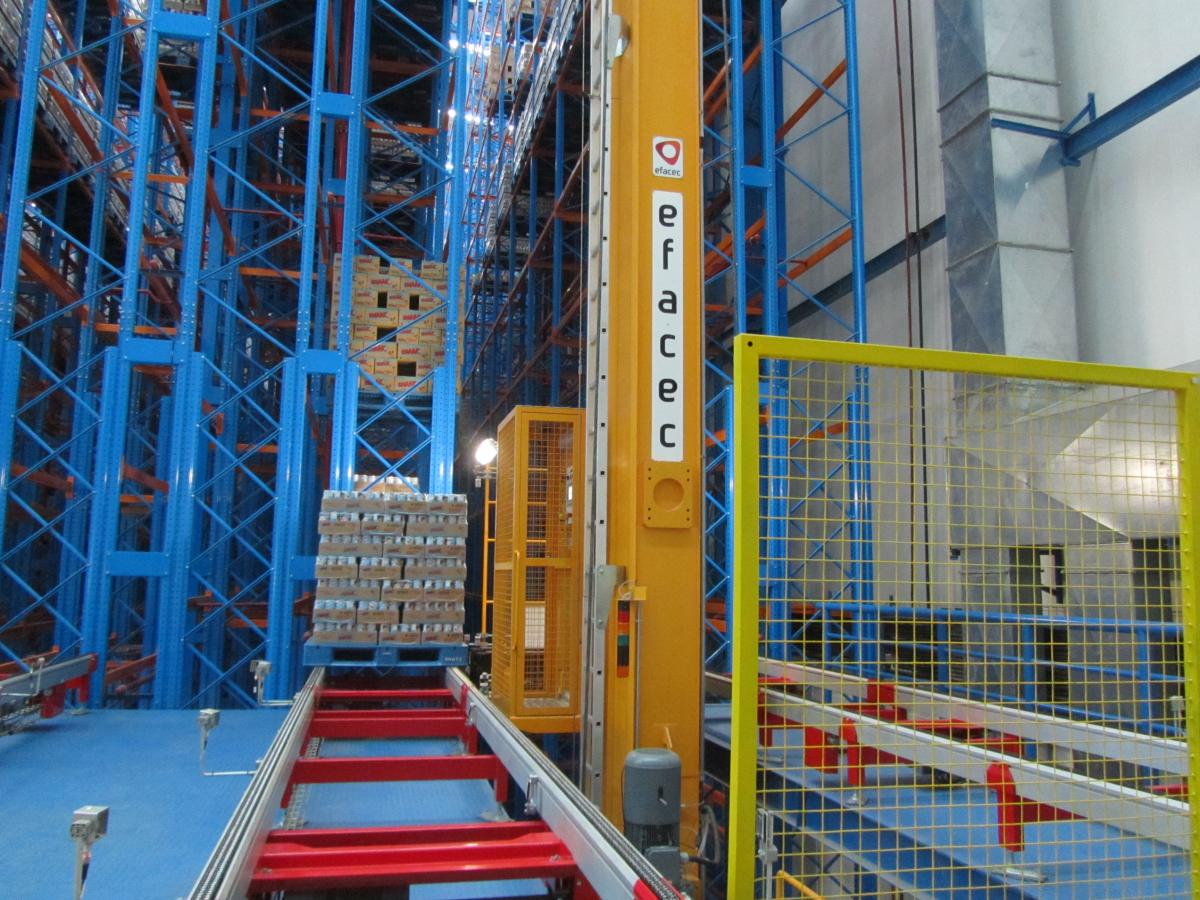INCREASED output is almost always top of mind for manufacturers, and very often, businesses find the solution for raising productivity in automation. But while production and packaging processes are crucial, it is equally important to speed up and automate warehousing operations in order to keep up with higher demand and supply rates.
Established in 1967, PT Indolakto – Indomilk (PT Indolakto) is the largest local producer of dairy goods in Indonesia, and is the company behind a host of familiar household dairy brands such as Indomilk, Cap Enaak, and Indoeskrim.

PT Indolakto’s plant in Surabaya
Over the years, the manufacturer has successfully penetrated foreign markets like Africa, Bangladesh, Middle East, with its delicious and nutritious range of sweetened condensed milk (SCM) and ultra-high temperature (UHT) milk.
Despite continued successes, PT Indolakto does not rest on its laurels. For its new plant in Surabaya, the company sought out productivity technologies that would increase output and performance, and called on Efacec to provide turnkey warehousing and material handling solutions. This was to be the first automated storage and retrieval system (ASRS) for Indolakto in Indonesia.
Johanes Chin, general manager, Project, commented, “The Surabaya plant was due to be our largest facility in Indonesia, and we had high hopes for it. That’s why we considered the use of automated machinery. Adopting a new way of doing things bring about uncertainties and disruptions, especially for well-established processes. But no matter the risks and challenges, we were determined to move ahead in order to broaden our horizons.”

Efacec’s unique proposal of four alternating single and double pallet racks offer a total of 10,250 racking locations
Going beyond manual operations
Since its inception more than four decades ago, PT Indolakto has relied largely on manual labor in its storage processes. Forklifts transported palletized cartons to, from and around the warehouse, while reach trucks were responsible for lifting the dairy products to their respective racking locations. And, in the absence of an automated coding system, employees labelled goods by hand.
Although these manual processes met PT Indolakto’s needs for the most part, they also posed a number of challenges, some of which hampered the efficiency of the warehousing procedures. For example, with manual, handwritten coding on cartons, goods were sometimes misplaced due to human error. In addition, PT Indolakto did not fully utilize warehouse space because the reach trucks could only lift the pallets to a maximum height of 12m.

With the RGV, pallets can be moved swiftly and safely to the staging area
Automation for success
So with full consideration of all the shortcomings of a largely manual operation, PT Indolakto made a bold decision to build a new warehouse that required minimal forklifts, reach trucks and manpower.
Mr Chin shared, “As part of our research, a team visited factories of leading dairy producers in Australia, China, New Zealand and Taiwan to understand the technologies behind their production and storage processes. One common element we noticed across all the plants was the use of ASRS.”
Seeing that the ASRS lasted each manufacturer for at least a decade, and having justified the investment outlay and returns, PT Indolakto set out to search for a supplier that would be able to provide a turnkey storage and material handling facility for its Surabaya plant. Of the six competing companies that vied for this project, Efacec.
“Efacec was very thoughtful in the plan that they came up with,” Mr Chin said. “Knowing that this would be our first encounter with an ASRS, they included an in-house support program as part of the proposal. This meant that local Efacec technicians would be based at PT Indolakto for two years to assist in operations, maintenance and troubleshooting.”
Another unique feature of Efacec’s proposal was the use of a total of four alternating single and double deep pallet racks, which were 26 meters in height and in total offer 10,256 racking locations.
Alvin Yap, deputy general manager, Business Development & Marketing, shared, “The use of single and double deep racks in a single warehouse is uncommon. But we decided to include both so that PT Indolakto would be able to take advantage of the unique benefits each system presented, including quick storage and retrieval for single deep racks, and enhanced storage space for double deep shelves.”
The inclusion of rail guided vehicles (RGV) was also another factor that led Efacec to secure this project. RGV move much faster than conveyor systems, and are known to be amongst the gentlest modes of transport, allowing pallets within the Surabaya plant to be moved swiftly and safely to the staging area.
Reaping the benefits
Since the ASRS system was implemented in November 2012, PT Indolakto has enjoyed significant improvement in its warehousing processes. In the past, warehouse operations were limited by the working hours of the employees. But with the Efacec automated system, storage procedures are now carried out round the clock.

Stacker cranes allowed PT Indolakto to fully utilize available vertical space
Besides extended operational hours, the new warehouse also features minimal roving vehicles. Based on PT Indolakto’s calculations, the Surabaya plant would have required 36 forklifts if the company retained its old warehousing processes. Following the installation of the ASRS, this number was significantly reduced to six. And, stacker cranes took the place of reach trucks, allowing PT Indolakto to maximize use of the premise’s entire vertical space.
Y. Baptista Indra, ASRS warehouse supervisor, remarked, “Automation has really helped us overcome some of the limitations we faced in the past – the need for overtime work is considerably less since the system operates 24 hours a day, and we can now effectively utilize all available space.”
Big plans for the future
When the second and last phase of the Surabaya plant is commissioned in the near future, the facility will be PT Indolakto’s largest in Indonesia. By then, the warehouse would have 20,500 racking locations – double the current storage space – in order to keep up with twice the production volume.
“Having seen the advantages an ASRS brings, we are currently considering the possibility of integrating ASRS in our existing and upcoming premises,” shared Mr Chin. “With improved efficiency of our warehouses and maximized storage space, we will inevitably be able to increase overall production as well.”
PT Indolakto looks to raise its production capacity by 25% between 2013 and 2015, and expects to fulfil this goal with the help of the Surabaya plant and many others that the company has planned for. Consequently, it will be able to meet its target of reaching the Latin American market as well.
Mr Chin concluded, “I’m glad that we took the brave step of embracing automation in our warehouse – Efacec’s custom-designed solution has indeed enabled us to work much faster than before. To many, a 25% increase in production capacity may seem virtually impossible to attain within two years. But we are confident that with Efacec’s ASRS, and our other newly adopted automated production technologies, PT Indolakto can achieve its goals and will be better poised to serve not just the local market, but those overseas as well.”
Nike KD













